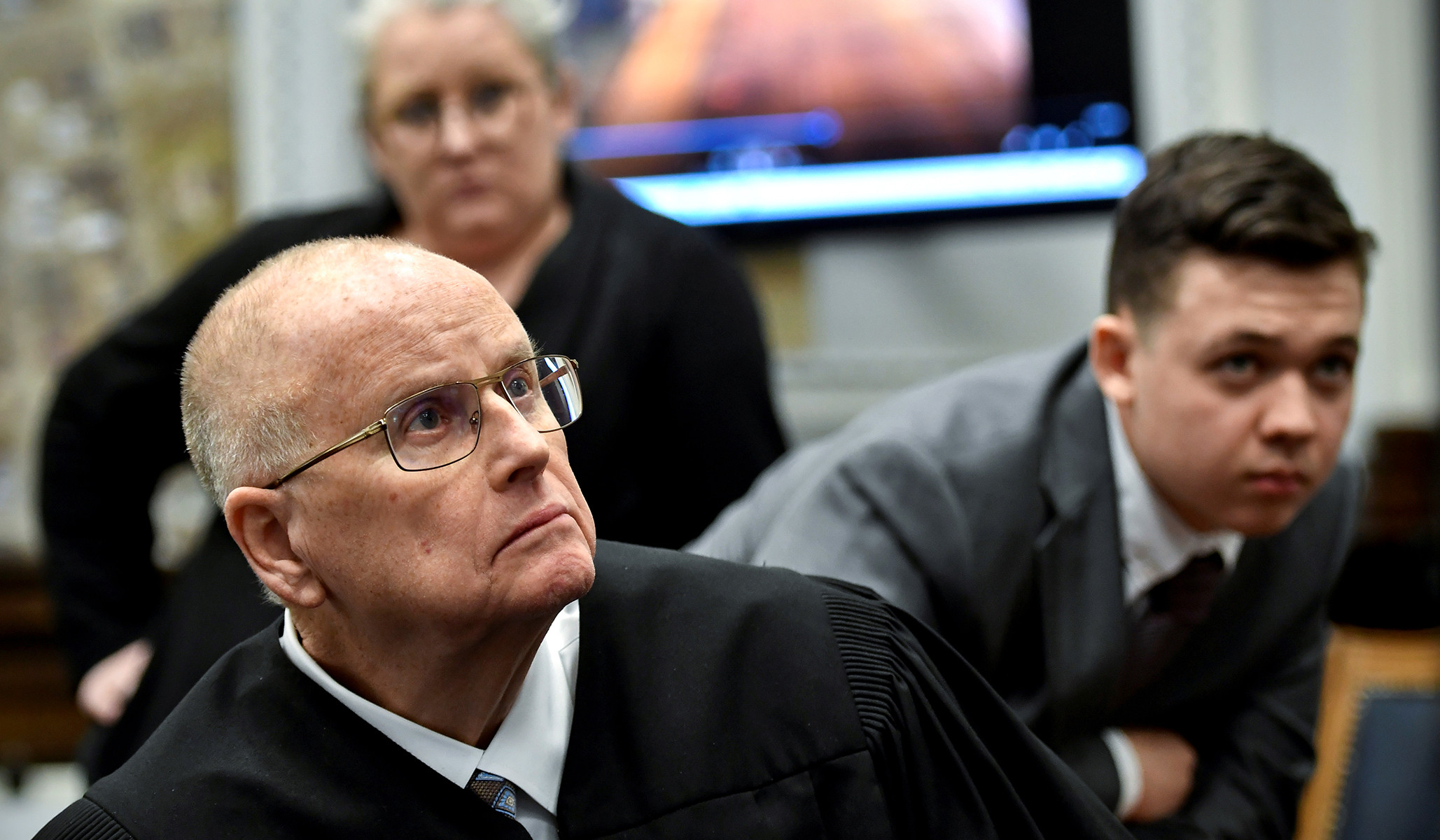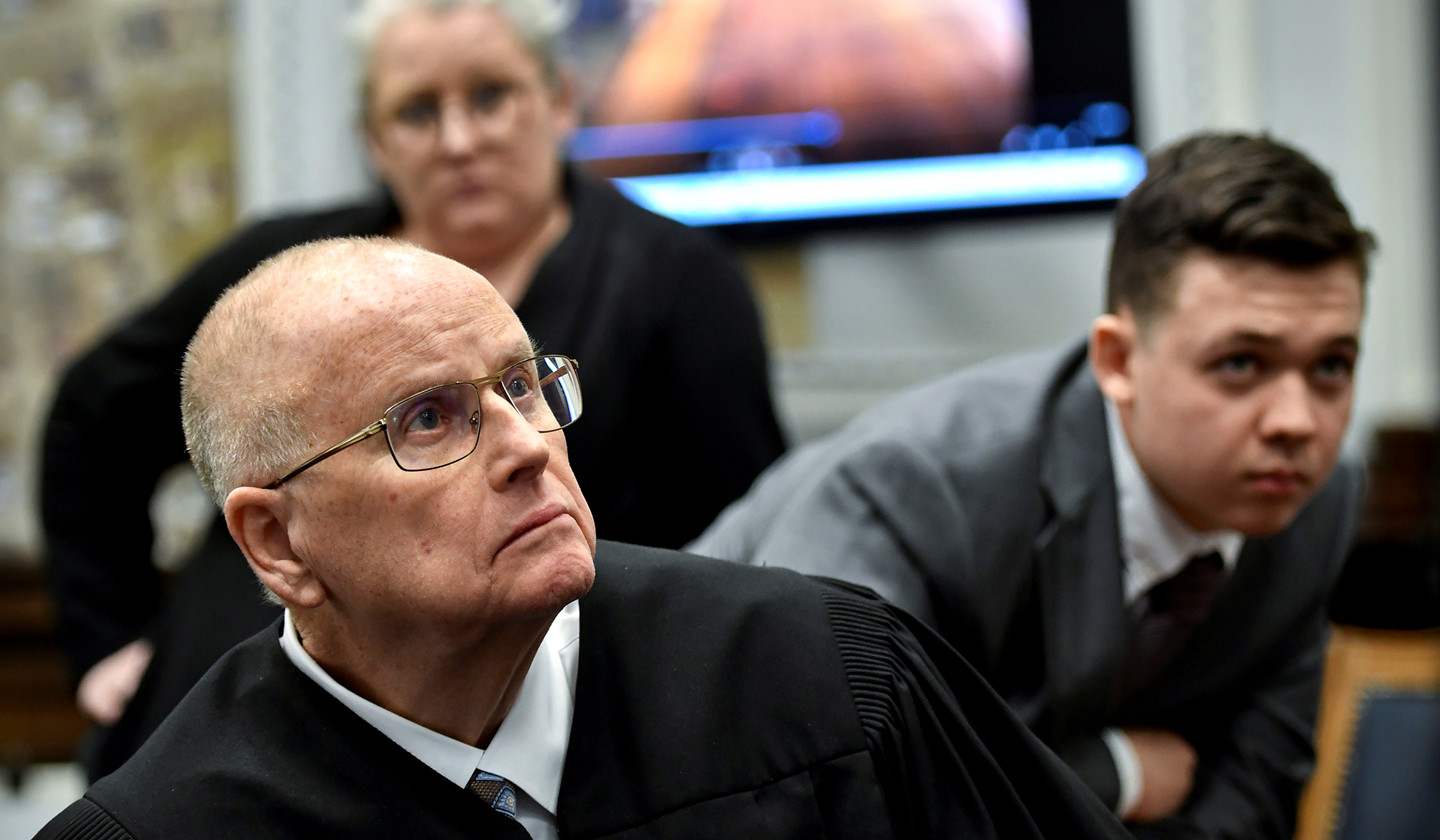
Today, we are scheduled to have closing arguments in the murder trial of Kyle Rittenhouse, who is claiming self-defense (and persuasively so, I believe) in connection with, essentially, two charges of murder (one intentional and one reckless), and two charges of attempted murder. I’ll be involved in the coverage on Fox News over the next few days — it’s possible we could have a verdict today, but I doubt it.
First, scheduling. The state of Wisconsin does summations and jury-instructions work in reverse of how things work in the federal criminal system (at least in the SDNY, where I tried cases). In the latter, the lawyers sum up first, then judge gives instructions to the jury on the law that applies to the case. In Wisconsin, the judge instructs the jury first, then lawyers sum up.
If things go according to schedule, Judge Schroeder will instruct the jury around 9 a.m. central time (10 a.m. in the east). It should take about an hour, because there are a number of charges. Legal instructions are also a bit dense, especially for non-lawyers (and even for attorneys who do not practice criminal law). So the judge usually gives the jury a break afterwards.
Assuming that happens, the prosecutor’s opening summation will start in the latter half of the morning session. Last week, the judge was talking about keeping the summations to about 90 minutes, but I don’t think that’s a hard rule. In any event, at some point, they’ll take what will probably be a short lunch break (between approximately 1 and 2 p.m. central). In the afternoon session, defense will give its summation (starting right after prosecutor has finished, if that hasn’t happened already). Then prosecutors will get a brief rebuttal. Many people think it’s unfair that prosecutors get to go twice, but it’s because they have the burden of proof. And as they say in the trial biz, the prosecutor doesn’t get the last word, the jury does.
As Rich and I discussed on the podcast on Friday, I think there is a misleading effort in the mainstream media and the unhinged Twitter Left to portray Judge Bruce Schroeder as a closet white supremacist who is in the tank for Rittenhouse . . . the accused who, of course, we are to assume is a neo-Nazi militia member, notwithstanding both that there is no evidence of that, and that the four men he shot were white — although they evidently get a pass for that “privilege” because they were nobly participating in left-wing rioting. (For more on the coverage, see this great MBD column today.)
I would note two things in rebuttal. First, Judge Schroeder scolded a prosecutor because the prosecutor’s conduct was abominable in (a) potentially causing a mistrial by commenting on the defendant’s post-arrest silence in violation of Fifth Amendment jurisprudence, and (b) broaching a subject that had been precluded by a clear court ruling. Any experienced judge would have been outraged by that misbehavior, especially on the part of a highly experienced prosecutor who obviously knows better.
Second, Schroeder could have dismissed the state’s case when it rested for failure to negate Rittenhouse’s defense of self-defense. He did not.
Third, Schoeder has not dismissed from the case the misdemeanor possession charge that is based on a hopelessly vague statute. This ostensibly minor offense is, as I have previously outlined, critical to the prosecution’s legal claim that, by committing this possession crime, Rittenhouse somehow waved his right to self defense.
Finally, the judge has also allowed the prosecution to introduce eleventh-hour evidence of potentially distorted video from which the prosecution is arguing that Rittenhouse may have pointed his gun at the companion (Joshua Ziminsky) of the first assailant shot (Joseph Rosenbaum). From this evidence, prosecutors contend that Rittenhouse committed a “provocation” that vitiates his self-defense right as a matter of law, and thus that he is guilty of all the shootings that followed.
These are very favorable rulings for the state. It gives prosecutors a chance to win a case they should lose. So, like everything else in this case, the picture of Judge Schroeder is more complex than what you’re hearing.

